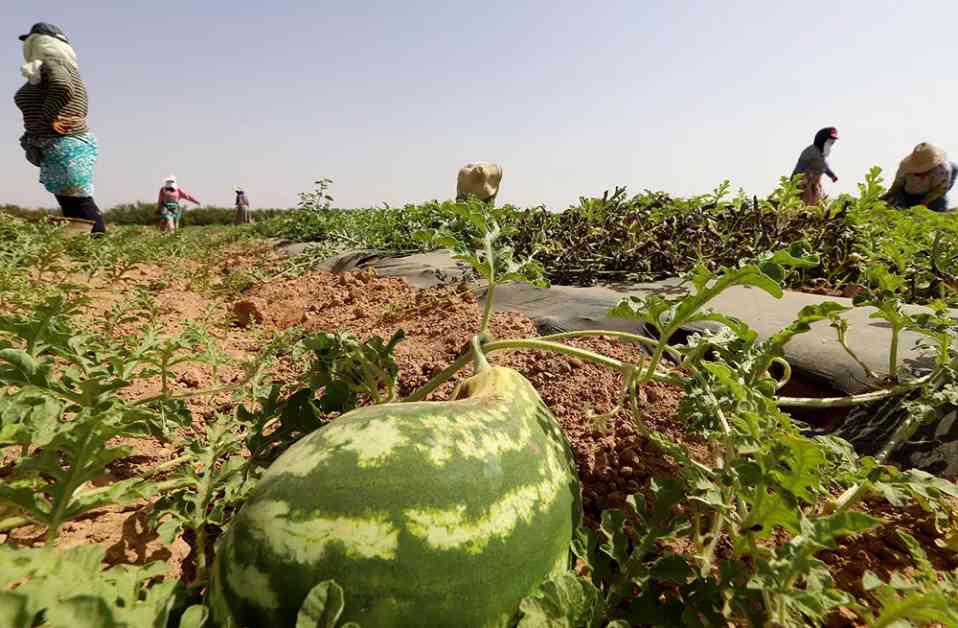Moroccan farmers are facing the challenge of adapting to drought conditions as they transition from watermelon farming to more sustainable practices. The impact of water scarcity on agriculture in Morocco is significant, with farmers like Moulay Ahmed Errahmani from Alhibat Négoce feeling the financial strain of restrictions imposed to conserve water resources. Despite the challenges, Errahmani recognizes the importance of adapting to ensure the future sustainability of agriculture in the region.
Adapting to Water Scarcity
In recent years, Morocco has experienced increasingly frequent and severe droughts, leading to water shortages that have affected agriculture across the country. As a result, farmers are being forced to find alternative ways to grow crops that are less water-intensive. This shift has been particularly challenging for watermelon farmers like Errahmani, who have traditionally relied on large quantities of water to cultivate their crops.
One of the key strategies that farmers are using to adapt to water scarcity is the implementation of more efficient irrigation techniques. By using drip irrigation systems and other water-saving methods, farmers can reduce the amount of water needed to grow their crops while still maintaining high yields. This not only helps to conserve water resources but also reduces the financial burden on farmers who are struggling to cope with the rising costs of water.
Exploring Diversification
In addition to implementing more efficient irrigation practices, Moroccan farmers are also exploring diversification as a way to adapt to changing environmental conditions. This involves growing a wider variety of crops that are more resilient to drought and require less water to thrive. By diversifying their crop selection, farmers can reduce their reliance on water-intensive crops like watermelons and improve their overall resilience to climate change.
For Errahmani and other farmers in Tata, this shift towards diversification has been a challenging but necessary step to ensure the long-term sustainability of their agricultural practices. While the transition may require additional investments in new equipment and training, the potential benefits of diversification in terms of increased crop resilience and profitability are significant.
Investing in Sustainable Agriculture
As Moroccan farmers continue to adapt to drought conditions and water scarcity, there is a growing emphasis on investing in sustainable agriculture practices that prioritize the efficient use of resources and minimize environmental impact. This includes promoting organic farming methods, using renewable energy sources, and implementing soil conservation techniques to improve the overall health and productivity of the land.
For farmers like Errahmani, investing in sustainable agriculture is not only a way to mitigate the effects of drought but also a long-term strategy for ensuring the viability of their farming operations. By adopting sustainable practices, farmers can reduce their reliance on finite resources like water and fertilizer, while also enhancing the quality and nutritional value of their crops.
In conclusion, the transition from watermelon farming to more sustainable agricultural practices in Morocco is a critical step towards adapting to drought conditions and ensuring the long-term viability of farming in the region. By implementing more efficient irrigation techniques, exploring diversification, and investing in sustainable agriculture, farmers like Moulay Ahmed Errahmani are paving the way for a more resilient and environmentally friendly future for agriculture in Morocco.

